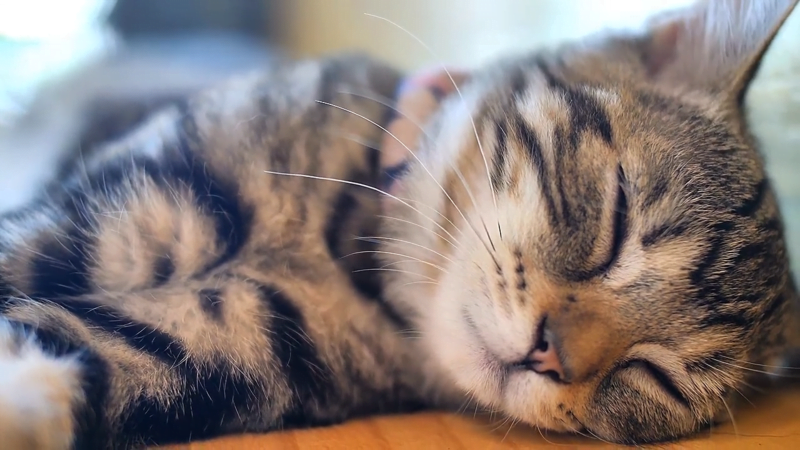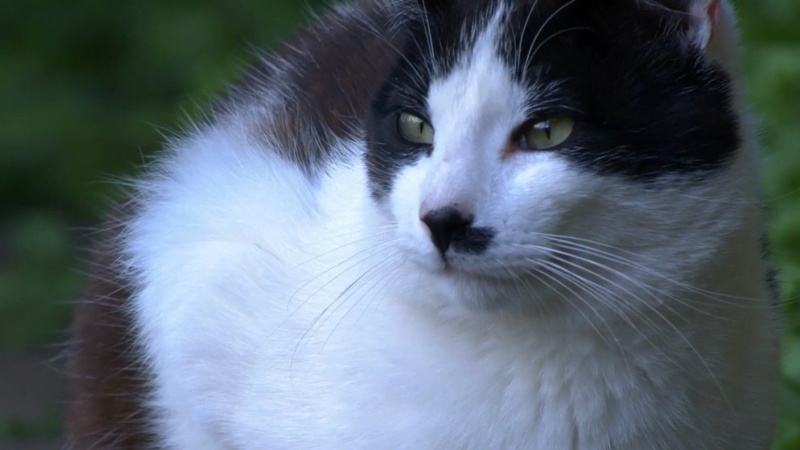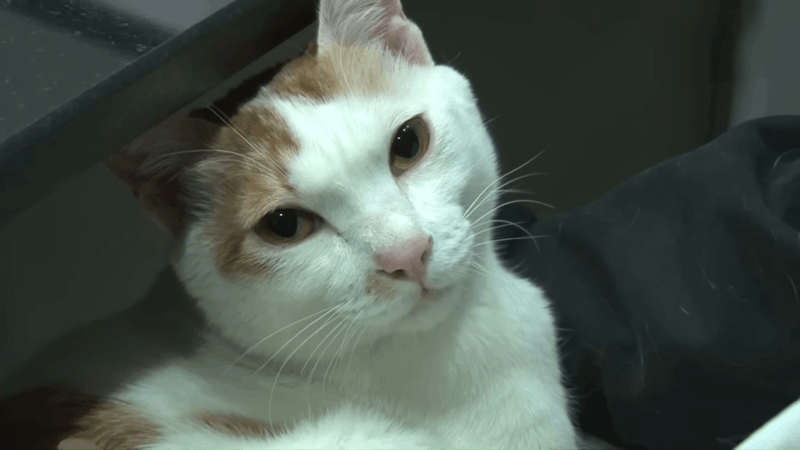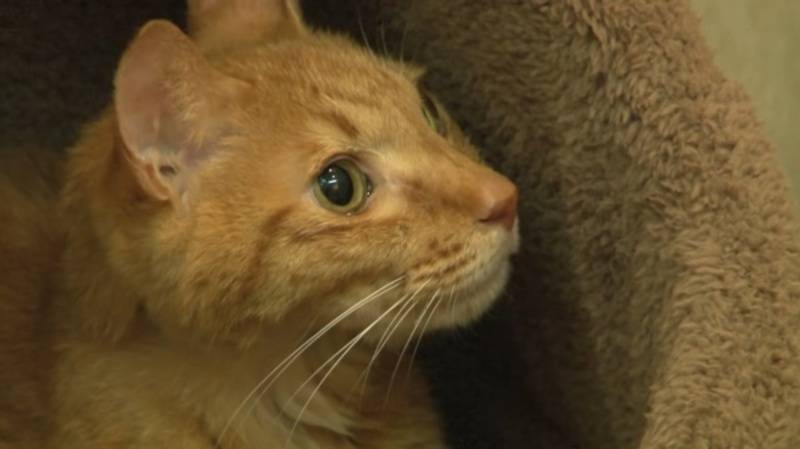No products in the cart.
Pancreatic cancer in cats is a truly devastating condition that affects our feline friends. It is a complicated illness that impairs the pancreas’ typical operation, which is in charge of critical processes including hormone synthesis and digestion. Recognizing the symptoms of this cancer is crucial because they can often go unnoticed or be mistaken for other conditions.
In this blog, we will discover pancreatic cancer in cats, its causes, common symptoms, impact on cats’ well-being, early warning signs of pancreatic cancer in cats, and even explore the potential benefits of CBD for pancreatitis cancer in cats.
What Is Pancreatic Cancer in Cats?
Pancreatic cancer, a malignant tumor that can occur in cats, affects the small organ called the pancreas, located near the stomach and small intestine. The pancreas is essential for manufacturing hormones, digestive enzymes, and insulin, which controls blood sugar levels. The pancreas’ typical functions may be interfered with when malignant cells form, which can result in a variety of medical issues.

Causes and Risk Factors of Pancreatic Cancer in Cats
While there are several identified risk factors, the exact causes of pancreatic cancer in cats remain unclear. These risk factors include:
- Age: Pancreatic cancer is more commonly seen in older cats, typically over the age of 10. As cats age, their cells are more susceptible to DNA mutations that can contribute to cancer development.
- Breed: Siamese and Abyssinian cats have been discovered to have a higher propensity for pancreatic cancer than other cat breeds. This suggests a potential genetic component to the disease.
- Hormonal imbalances: Cats with certain hormonal conditions, such as hyperthyroidism or diabetes, may be more susceptible to pancreatic cancer. These disorders’ accompanying hormonal abnormalities may contribute to the development of malignant cells.
- Environmental factors: The increased frequency of pancreatic cancer in cats has been linked to possible environmental poisons or chemical exposure. The particular environmental elements that influence the onset of pancreatic cancer in cats, however, are still unknown.
- Genetic factors: The development of pancreatic cancer in cats may occasionally be influenced by hereditary factors. To fully grasp the precise genetic markers connected to the disease, more study is required.
Common Symptoms of Pancreatic Cancer in Cats
Pancreatic cancer symptoms in cats can differ, and occasionally they may not even be present. However, there are a few common signs of pancreatic cancer, such as:
- Loss of appetite and weight loss: Cats with pancreatic cancer often experience a decrease in appetite, leading to noticeable weight loss.
- Increased thirst and urination: Excessive thirst and frequent urination can occur due to pancreatic cancer disrupting the normal blood sugar regulation in the body.
- Vomiting and diarrhea: Digestion issues, such as vomiting and diarrhea, can occur when normal pancreas function is interrupted.
- Abdominal pain or discomfort: Pancreatic cancer in cats may cause them to show signs of abdominal pain or discomfort, which can seem like restlessness or aversion to being touched in the abdomen.
- Lethargy and decreased activity levels: The presence of cancer can cause a general decline in a cat’s energy levels and overall activity.
- Difficulty breathing or respiratory distress: In advanced stages, pancreatic cancer can spread to the lungs or cause fluid accumulation around the lungs, leading to respiratory difficulties.
- Changes in behavior or mood: Cats with pancreatic cancer may exhibit changes in behavior, such as increased irritability or withdrawal from social interactions.
- Enlargement or palpable mass in the abdomen: As the tumor grows, it may cause a visible or palpable mass in the abdominal region.
The Impact of Pancreatic Cancer in Cats
The impact of pancreatic cancer in cats can be profound and multifaceted. Here are some key aspects of its impact
- Physical Health: Pancreatic cancer can cause a range of physical health issues in cats. The pancreas’ regular operation may be interfered with by the tumor, which could result in nutrient malabsorption, weight loss, and digestive issues. Additionally, it can affect insulin synthesis, which might result in diabetes or uncontrolled blood sugar levels. Further difficulties can result from the tumor’s ability to infect adjacent organs and tissues as it multiplies and spreads.
- Pain and Discomfort: Cats with pancreatic cancer may experience pain and discomfort. The tumor itself can cause pain due to its effects on the surrounding tissues and organs. Additionally, as the disease progresses, cats may develop complications such as abdominal distension, inflammation, or obstruction, which can exacerbate discomfort.
- Quality of Life: Cats’ quality of life may be significantly impacted by pancreatic cancer. The signs and consequences of the disease, which might include decreased appetite, weight loss, tiredness, and gastrointestinal issues, may have an influence on their general health. Cats may become less active, experience a reduced interest in their surroundings, and display changes in behavior and mood.
- Emotional and Psychological Impact: Dealing with a diagnosis of pancreatic cancer in a beloved cat can be emotionally challenging for owners. It can cause stress, worry, and sadness as they witness their cat’s health decline. Coping with the emotional aspects of the disease, making difficult decisions regarding treatment and end-of-life care, and grieving the loss of a cherished companion can be emotionally demanding for owners.
Early Warning Signs of Pancreatic Cancer in Cats
- Decreased appetite: Cats with pancreatic cancer may show a reduced interest in food or have a decreased appetite. They may be less enthusiastic about meals or exhibit picky eating habits.
- Weight loss: Unexplained weight loss is a common early warning sign of pancreatic cancer in cats. Despite maintaining their usual diet or even eating more, cats may continue to lose weight.
- Changes in behavior: Cats with pancreatic cancer may display changes in their behavior. They may become more withdrawn, less interactive, or exhibit a decrease in their normal activity levels. They may spend more time sleeping or show less interest in play and exercise.
- Increased thirst and urination: Pancreatic cancer can affect blood sugar regulation, leading to increased thirst (polydipsia) and urination (polyuria). Cats may drink more water than usual and make more frequent trips to the litter box.
- Vomiting and diarrhea: Digestive disturbances can occur in cats with pancreatic cancer. They may experience recurrent episodes of vomiting and diarrhea, which can be intermittent or persistent.

Pain or Discomfort That Cats With Pancreatic Cancer May Exhibit
The presence of a pancreatic tumor in cats can lead to pain or discomfort as it affects nearby tissues and organs. Cats may exhibit various indicators of pain or discomfort, such as:
- Restlessness or agitation: Cats may appear restless, pace around, or have difficulty settling down. They may frequently change positions in an attempt to find relief from discomfort.
- Changes in posture: Cats with pancreatic cancer may exhibit changes in their posture. They may hunch their backs or avoid certain positions that put pressure on the abdominal area.
- Decreased mobility: Cats in pain may show reluctance to jump, climb, or engage in physical activities they once enjoyed. They may move more cautiously and exhibit a reduced range of motion.
- Vocalization: Some cats may vocalize or cry out due to pain. They may meow, growl, or make other distressing vocalizations.
Physical Symptoms and Visible Indications of Pancreatic Cancer in Cats
Physical symptoms and visible indications of pancreatic cancer in cats may include:
- Palpable abdominal mass: As the pancreatic tumor grows, it can sometimes be felt as a lump or swelling in the abdominal area. However, not all pancreatic tumors are palpable.
- Abdominal distension: In some cases, cats with pancreatic cancer may develop an enlarged or distended abdomen. This can be caused by the tumor’s growth or fluid accumulation.
- Jaundice: Jaundice can develop if a tumor blocks the bile duct, which can cause an accumulation of bilirubin in the body and cause jaundice. Cats may exhibit yellowing of the skin, eyes, and gums.
- Poor body condition: Cats with pancreatic cancer may appear thin or emaciated. The disease can lead to weight loss and muscle wasting, contributing to a deteriorated body condition.
When to Seek Veterinary Care and Diagnostic Tests
If you observe any concerning signs or suspect pancreatic cancer in your cat, it is important to seek veterinary care promptly. You should consult a veterinarian if:
- Your cat’s appetite continues to decrease, leading to significant weight loss.
- Your cat shows persistent or worsening symptoms, such as vomiting, diarrhea, changes in behavior, or signs of pain.
- You notice physical abnormalities, such as a palpable mass in the abdomen, abdominal distension, or jaundice.
- Your cat’s overall health and well-being deteriorate, and there are concerns about their comfort or quality of life.
CBD for Pancreatitis Cancer in Cats
CBD, or cannabidiol, is a compound derived from the cannabis plant that has gained attention for its potential therapeutic properties. While research specifically focused on CBD use for pancreatic cancer in cats is limited, there are some potential benefits to consider. CBD should not be considered a cure for pancreatic cancer in cats, and its use should be part of a comprehensive treatment plan that includes conventional veterinary care. Regular monitoring and communication with a veterinarian are essential to ensuring the safe and appropriate use of CBD for cats with pancreatic cancer.

Potential Benefits of CBD for Cats with Pancreatic Cancer
- Pain management: CBD has been recognized for its potential analgesic properties. It may help alleviate the pain and discomfort associated with pancreatic cancer in cats.
- Anti-inflammatory effects: CBD has demonstrated anti-inflammatory characteristics in a number of trials, and it might help lessen inflammation linked to pancreatic cancer.
- Appetite stimulation: Cats with pancreatic cancer may experience a reduced appetite, leading to weight loss and malnutrition. CBD has been reported to have appetite-stimulating effects, which may help improve food intake in cats undergoing treatment for pancreatic cancer.
- Stress and anxiety reduction: Cats dealing with a pancreatic cancer diagnosis may experience stress and anxiety. CBD has been suggested to have anxiolytic effects, potentially helping cats relax and cope with the emotional challenges they may face.
Risks of Using CBD for Cats with Pancreatic Cancer
When considering the use of CBD for cats with pancreatic cancer, it is important to be aware of the risks involved:
- Lack of research: The specific effects of CBD on pancreatic cancer in cats have not been extensively studied. Since CBD’s effectiveness and safety for treating pancreatic cancer in cats are still being researched, it is crucial to understand that it should be used as a component of a comprehensive therapy approach.
- Drug interactions: CBD can interact with certain medications, including those used in cancer treatment. A veterinarian should be consulted before using CBD in combination with other medications to be sure there are no potential interactions or negative side effects.
- Quality and dosing concerns: The quality and strength of CBD products can vary widely. It’s critical to select premium CBD products made especially for pets and adhere to recommended dosage levels. The ideal dosage for your cat’s unique needs can be determined by working closely with a veterinarian.
Precautions When Using CBD for Cats with Pancreatitis
- Veterinary guidance: Before starting any CBD treatment, consult with a veterinarian who has experience with CBD for cat pain. They can provide guidance on dosage, and potential interactions, and monitor your cat’s response to the treatment.
- Individual considerations: Considering how different each cat is, what works for one cat might not work for another. Cats with certain health conditions or sensitivities may require extra caution or adjustments in CBD treatment. A veterinarian can evaluate your cat’s overall health and make appropriate recommendations.
- Monitoring and observation: Regular monitoring of your cat’s condition is essential when using CBD. Observe for any changes in behavior, appetite, or overall well-being, and communicate with your veterinarian regarding any concerns or observations.
- Compliance with local regulations: CBD laws and regulations can vary by jurisdiction. Ensure that the use of CBD for your cat complies with the legal requirements of your location.
Conclusion
Pancreatic cancer in cats is a serious condition that affects the pancreas, leading to various health issues. It can cause physical discomfort, suffering, and behavioral abnormalities. The use of CBD for pancreatic cancer in cats is still being studied, but it may have advantages like pain relief, inflammation reduction, hunger stimulation, and stress reduction.
I am Nelson Cooper, I pursue my passion for writing and my belief is that cats love humans. I enjoy traveling and have a deep appreciation for the beauty of nature, as well as a soft spot for animals, particularly cats.


